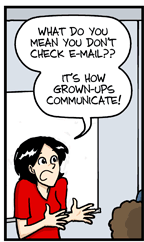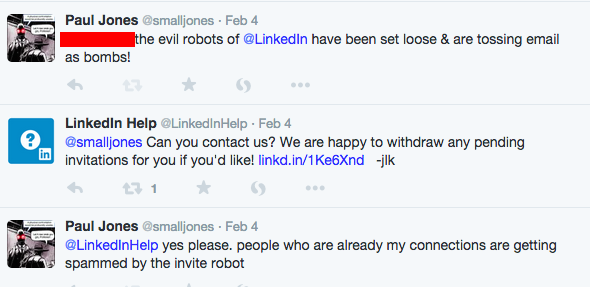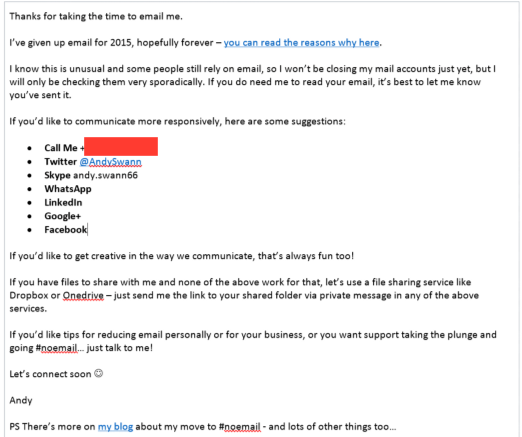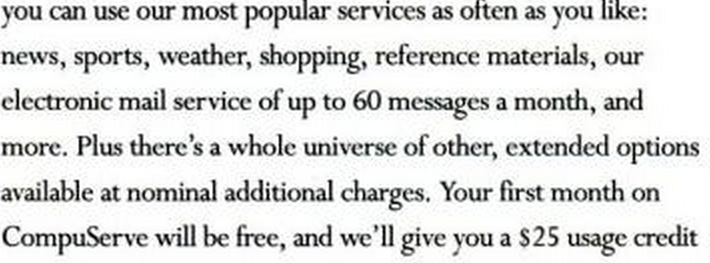
There have been a flurry of articles recently calling for a #noemail day at work. Not easing into a reduced email daily practice or the switch from email to better forms of communication, but just “Hey relax. Change things up a little get to know each other better. Casual Friday. #noemail Wednesday. Beach Volley Ball after work.”
Now on the face of it, this isn’t such a bad idea. I mean a few folks will seriously reconnect and realize who they are working with and why. Some of them will not jump up and get a new job once they realize that. I mean they may remember why they joined the company in the first place — in a good way.
And a few will have begun to develop some of the better communications options we’ve been discussing here on this blog for the past nearly four years. That’s progress.
But for more it’s just a novelty, a change up, a head poke up out of the rut – the cubical, the open office, the Skype conference that daily rules the lives of office workers.
Consider Stephanie Vozza‘s “Why Your Company Should Consider Banning Email” in a recent Fast Company Leadership post, an article that can’t decide how much a company should give up when they give up email.
Vozza rehearses a selection of stories covered by Fast Company in years past to go from the evils of email (stress, poor communication, etc), to taking a day off, or half a day off, to stalwarts ATOS and Angellist who have made serious moves from email. Oddly–it seems at first–her final paragraph, dedicated to quotes from Babak Nivi of Anglelist, who just in the article in a paragraph above praises HipChat, in favor of face-to-face communications. Finally you get that the article is a fine humanistic piece about reconnection.
While there is nothing wrong with desiring a human connection, a conversation, or even a location-centered company, all of that is difficult to achieve and in many cases the needs of the workers, the needs of the company and the needs of the clients trump location, trump face-to-face and reestablish the routine that Vozza seeks to undermine in favor of an enriched work life.
There is no going back to face-to-face only, location-based work places.
What #noemail will have to do is to offer strong alternatives that are highly collaborative, mobile preferred, whitelisted, terse, quick, highly interactive, context appropriate, available to all devices, and with highly manageable and customizable communications streams
Let me without irony invite you to begin getting ready for #noemaildayhq May 5, 2015 (aka 5/5/15). I mean it can’t hurt to try.
















Recent Comments